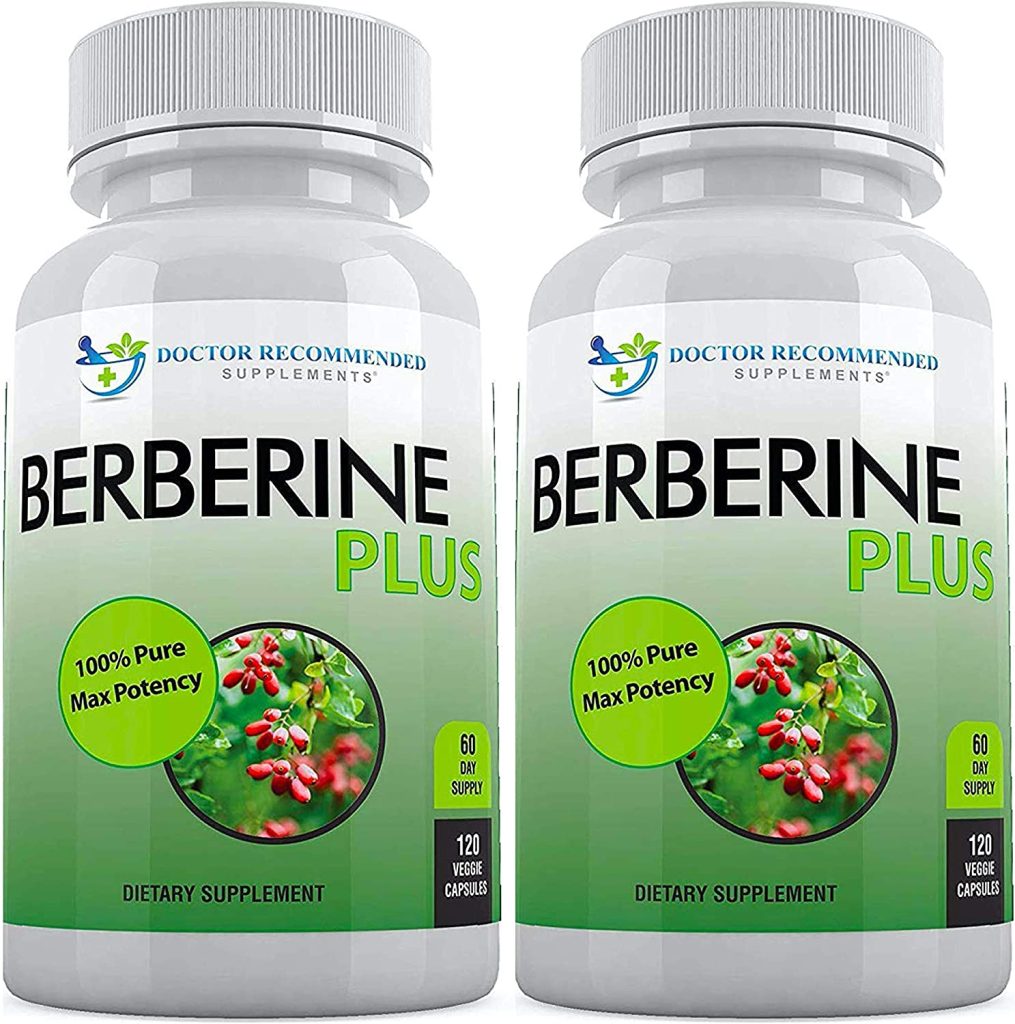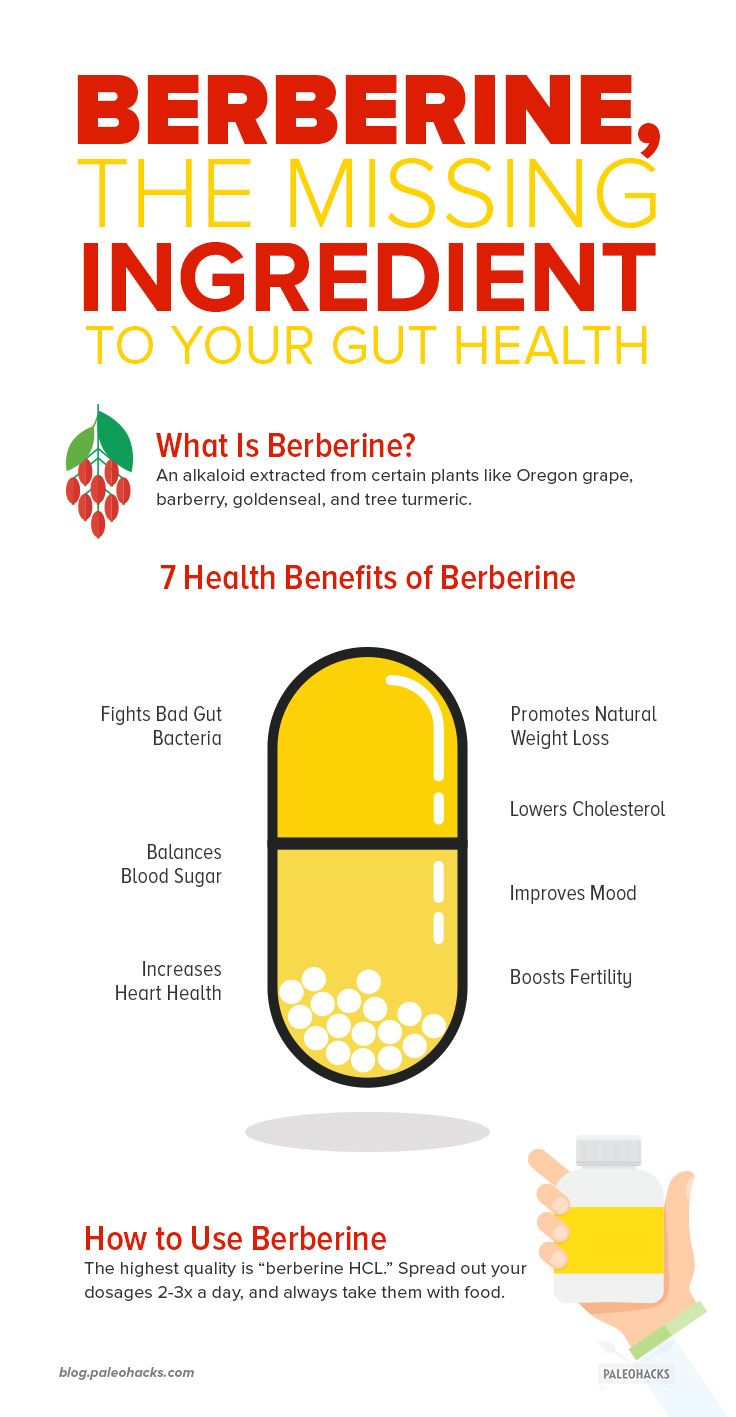Berberine, a bioactive compound found in several plants, has gained significant attention for its potential to aid in weight loss, especially in those dealing with obesity and related conditions like diabetes, metabolic syndrome, and insulin resistance. The primary mechanism through which berberine promotes fat loss lies in its ability to activate AMPK (adenosine monophosphate-activated protein kinase), a master regulator of energy balance and metabolism.
But how does berberine influence your body’s weight loss process on a deeper, cellular level? Below, we explore its effects on metabolic pathways, blood sugar control, fat regulation, and overall health benefits in 2024.
How Berberine Affects Fat Metabolism: The Science
When we talk about fat loss, it’s crucial to understand the role of AMPK activation, which berberine triggers. This enzyme influences several biological processes that are crucial for weight management:
-
Gluconeogenesis: Berberine reduces the liver’s production of glucose, which helps in controlling blood sugar levels.
-
Lipogenesis: It inhibits the formation of new fat cells, limiting fat storage in adipose tissue.
-
Thermogenesis: Berberine enhances heat production in muscle cells, promoting fat burning.
These effects combined make berberine a promising tool in the fight against weight gain and obesity.
Infographic: Biological Processes Affected by Berberine
| Process | Impact Level | Description |
|---|---|---|
| AMPK Activation | High | Increases fat burning and energy expenditure. |
| Gluconeogenesis | Medium | Reduces glucose production in the liver, supporting balanced blood sugar. |
| Lipogenesis | High | Prevents the formation of new fat cells in adipose tissue. |
| Thermogenesis | Medium | Increases the body’s ability to burn fat by raising heat production in muscle cells. |
| Oxidative Stress | Low | Reduces oxidative stress, which can help in preventing inflammation linked to obesity. |
The Role of Berberine in Insulin Sensitivity and Blood Sugar Control
Insulin resistance is a key driver of obesity and diabetes. By improving insulin sensitivity, berberine can help your body utilize glucose more effectively. This not only prevents excess glucose from being stored as fat but also stabilizes blood sugar levels, reducing hunger pangs and preventing overeating.
Berberine directly targets GLUT4, a glucose transporter found in muscle and fat cells. Increased GLUT4 activity means better glucose uptake and less storage in fat cells.
List of Benefits of Berberine for Weight Loss
A. Enhances Fat Burning:
-
Activates AMPK, promoting fat oxidation and energy expenditure.
B. Prevents Fat Storage:
-
Inhibits lipogenesis, reducing the formation of new fat cells in the liver and adipose tissue.
C. Reduces Blood Sugar Levels:
-
Improves insulin sensitivity and prevents spikes that lead to weight gain.
D. Boosts Metabolism:
-
Increases thermogenesis, helping the body burn more calories even at rest.
E. Reduces Inflammation:
-
Lowers levels of pro-inflammatory cytokines like TNF-α and IL-6, reducing obesity-related inflammation.
Berberine’s Long-Term Effects on Metabolism
Over time, berberine influences gene expression related to fat storage and metabolism. This occurs through its impact on proteins like SREBP-1c, FAS, and ACC, which regulate fatty acid synthesis.
Infographic: Gene and Protein Impact of Berberine on Fat Storage
| Gene/Protein | Function | Berberine’s Impact |
|---|---|---|
| SREBP-1c | Controls fat production in the liver | Berberine downregulates this gene, reducing fat accumulation in the liver. |
| FAS (Fatty Acid Synthase) | Promotes fat synthesis | Berberine inhibits FAS activity, limiting fat cell growth. |
| ACC (Acetyl-CoA Carboxylase) | Key enzyme in fat metabolism | Reduces ACC activity, which decreases fat storage and increases fat oxidation. |
| CPT-1 (Carnitine Palmitoyltransferase 1) | Regulates fat burning | Increases CPT-1 levels, enhancing the body’s capacity to burn fatty acids for energy. |
Top Strategies for Using Berberine to Maximize Weight Loss
Strategy 1: Take Berberine with Meals
-
By taking berberine before or during meals, you can significantly lower post-meal blood sugar spikes, enhancing weight control.
Strategy 2: Combine Berberine with Exercise
-
Berberine has a synergistic effect with physical activity. It enhances AMPK activation, especially during moderate to high-intensity workouts, promoting fat loss in muscle tissue.
Strategy 3: Use Berberine in Combination with a Balanced Diet
-
Berberine works best when combined with a diet that supports metabolic health. A diet rich in whole foods, lean proteins, and healthy fats further boosts PPARγ activity, enhancing glucose and fat metabolism.
Berberine Supplements: Choosing the Right One
Not all berberine supplements are created equal. Here’s what to look for:
-
Purity: Ensure the supplement contains at least 500 mg of pure berberine extract per serving.
-
Form: Capsules are typically the most convenient, but some prefer liquid forms for faster absorption.
-
Brand Reputation: Opt for brands with high-quality control standards and positive customer reviews for their weight loss results.
-
Third-Party Testing: Always choose supplements that are tested by an independent third party for purity and potency.
Berberine and Its Role in Reducing Inflammation
Inflammation is a significant factor contributing to obesity and its related diseases, including metabolic syndrome and type 2 diabetes. Berberine has potent anti-inflammatory properties, which further enhance its weight loss effects.
By reducing pro-inflammatory cytokines like TNF-α and IL-6, berberine helps lower systemic inflammation. This is especially crucial for people dealing with insulin resistance, where chronic inflammation can exacerbate the condition. Additionally, reducing inflammation promotes better function in vital organs like the liver, pancreas, and gut, ensuring a healthy metabolic environment.
The Potential Role of Berberine in Targeting Visceral Fat
Visceral fat, the fat that wraps around your internal organs (especially in the abdomen), is highly problematic. It increases the risk of cardiovascular diseases, NAFLD (Non-Alcoholic Fatty Liver Disease), and hyperlipidemia. Fortunately, berberine has been shown to target and reduce visceral fat due to its effects on PPARγ and lipogenesis.
In a study focused on individuals with obesity, berberine helped reduce visceral fat deposits by improving fat oxidation in adipose tissue and regulating fat storage processes. Over time, this can significantly decrease the health risks associated with visceral fat accumulation.
Comparing Berberine with Other Weight Loss Supplements
When comparing berberine to other popular weight loss supplements, such as green tea extract, CLA (Conjugated Linoleic Acid), or Garcinia Cambogia, its mechanisms are more robust in targeting the root cause of weight gain: poor metabolism and insulin resistance.
Infographic: Berberine vs. Other Weight Loss Supplements
| Supplement | Mechanism | Effectiveness on Metabolism | Fat Burning |
|---|---|---|---|
| Berberine | AMPK activation, glucose regulation | High | High |
| Green Tea Extract | Increases thermogenesis via catechins | Medium | Medium |
| CLA | Alters fat metabolism | Low | Medium |
| Garcinia Cambogia | Suppresses appetite, blocks fat production | Low | Low |
| Raspberry Ketones | Increases fat breakdown in cells | Low | Medium |
Berberine’s ability to directly impact AMPK, PPARγ, and other fat metabolism processes makes it stand out as an all-encompassing solution for those seeking effective weight management solutions.
Problem-Solution: Addressing Common Issues with Berberine Usage
Problem: Some users may experience gastrointestinal discomfort when starting berberine. This could range from mild nausea to more severe digestive issues like diarrhea. These side effects, although temporary, can be discouraging.
Solution: Start with a low dose (around 300 mg per day) and gradually increase to 1,500 mg over time. This helps your gut adjust to the supplement, minimizing the chances of adverse reactions. Another effective solution is to take berberine with meals, which can further reduce any GI distress.
The Future of Berberine for Weight Loss in 2024 and Beyond
Looking ahead, berberine is expected to continue growing in popularity as more research underscores its benefits. As its role in regulating AMPK, PPARγ, and other metabolic processes becomes more understood, it may even become a staple supplement in diabetes and obesity management plans across the globe.
Several clinical trials are currently underway to explore berberine’s effects on other related conditions, such as PCOS and NAFLD. If these trials prove successful, it could further solidify berberine’s status as one of the best all-around natural supplements for weight loss, metabolic health, and beyond.
A Look at the Side Effects of Berberine and How to Manage Them
While berberine is generally well-tolerated, it’s important to be aware of the possible side effects, especially when using it for long-term weight loss.
-
Digestive Issues: As mentioned earlier, nausea, constipation, or diarrhea may occur. These issues are usually mild and can be reduced by lowering the dosage.
-
Interaction with Medications: Berberine can interact with other medications, particularly those used to treat diabetes and high cholesterol. Consult with your healthcare provider before starting berberine if you’re on any prescription medications.
-
Liver and Kidney Function: Although rare, there have been some reports of berberine affecting liver enzyme levels. Regular check-ups with a healthcare provider are advised when using berberine for extended periods, especially for those with pre-existing liver or kidney conditions.
Long-Term Use of Berberine: Pros and Cons
Pros:
-
Sustainable Weight Loss: By improving metabolic health, berberine helps users achieve lasting weight loss.
-
Improved Insulin Sensitivity: Reduces the risk of type 2 diabetes.
-
Lowered Inflammation: May lower risk factors associated with obesity-related inflammation.
-
Enhanced Cardiovascular Health: Berberine has been shown to reduce cholesterol and triglycerides, promoting heart health.
Cons:
-
Potential for Tolerance: Some studies suggest that after prolonged use, the body may develop tolerance to berberine’s effects. Cycling off berberine every few months can help mitigate this.
-
Possible GI Discomfort: Gastrointestinal issues remain the most common side effect, though these often diminish over time.
A Comprehensive Plan for Berberine Weight Loss
For those seeking to use berberine effectively in their weight loss journey, here is a step-by-step approach:
-
Start with 500 mg daily: Begin with a low dose to allow your body to adapt.
-
Increase to 1,500 mg over time: Gradually increase your dosage to maximize fat-burning benefits.
-
Combine with Exercise: Pair berberine with a regular exercise routine to enhance AMPK activation.
-
Follow a Balanced Diet: Opt for a diet rich in whole grains, lean proteins, and healthy fats to support berberine’s effects on metabolism.
-
Monitor Your Blood Sugar: Especially for those with diabetes, keeping track of blood sugar levels is crucial to ensure you’re getting the best results without adverse effects.
Summary
Berberine offers a powerful, multifaceted approach to weight loss and overall metabolic health. By improving insulin sensitivity, regulating fat storage, and enhancing fat-burning processes, it addresses many of the root causes of weight gain, especially in individuals with obesity or diabetes. Additionally, its anti-inflammatory properties and ability to lower cholesterol make it an excellent supplement for promoting heart and liver health.
For those seeking a natural supplement that provides scientifically backed results, berberine continues to stand out as an effective choice in 2024. By integrating it into a healthy lifestyle of diet and exercise, users can unlock its full potential for sustainable weight loss.
FAQs About Berberine Weight Loss
-
Q: How long does it take to see results from berberine for weight loss? A: Most people notice improvements within 4–8 weeks of consistent use, particularly when combined with a healthy diet and exercise.
-
Q: Is berberine safe for people with diabetes? A: Yes, berberine is particularly beneficial for people with type 2 diabetes due to its blood sugar-lowering effects. However, always consult your doctor before starting any supplement.
-
Q: Can I take berberine long-term for weight management? A: Yes, but it’s essential to cycle the use of berberine every 3 months to prevent the body from building a tolerance.
-
Q: Can I combine berberine with other supplements for better weight loss? A: Yes, berberine can be safely combined with other fat-burning supplements like green tea extract or CLA. However, it’s important to check for potential interactions.
-
Q: How does berberine compare to other weight loss supplements? A: Berberine is unique because it works at a cellular level, addressing underlying metabolic issues like insulin resistance and fat metabolism, making it more effective for those with metabolic disorders like diabetes and PCOS.



